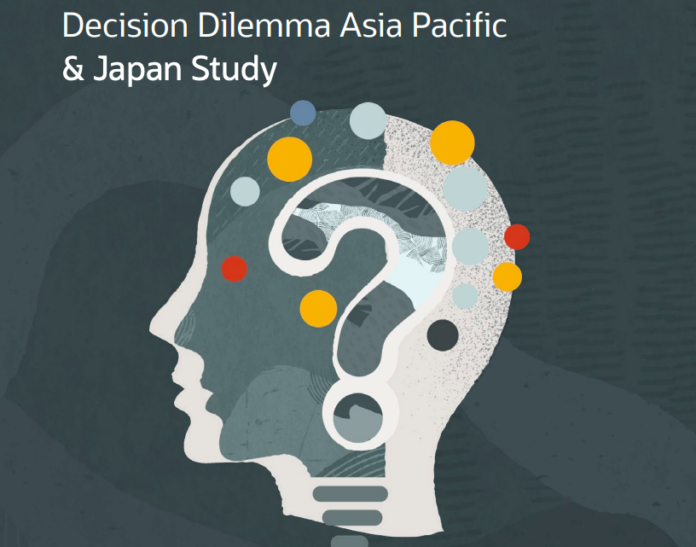People feel overwhelmed and under qualified to use data to make decisions and this is hurting their quality of life and business performance, according to a new study by Oracle and Seth Stephens-Davidowitz, New York Times bestselling author.
Conducted in January, the study covered 14,250 employees and business leaders across 17 countries, including 4,500 respondents from the Asia-Pacific region with Japan.
Findings show that 74% of respondents say the number of decisions they make every day has increased 10 times over the last three years and as they try to make these decisions, 75% are getting bombarded with more data from more sources than ever before.
Among respondents, 89% say this inability to make decisions is having a negative impact on their quality of life. It is causing spikes in anxiety (37%), missed opportunities (37%), and unnecessary spending (35%).
As a result, 92% have changed the way they make decisions over the last three years. Now, 41% only listen to sources they trust and 31% rely solely on gut feelings.
Also, decision distress is creating organisational inertia, but 96% want help from data. In an ideal world, they want data to help them make better decisions (43%), reduce risk (37%), make faster decisions (40%), make more money (37%), and plan for the unexpected (30%).
Managing different data sources has required additional resources to collect all the data (47%), made strategic decision making slower (38%), and introduced more opportunities for error (31%).
Business leaders do not believe that the current approach to data and analytics is addressing these challenges, and 74% of respondents from the region say that the dashboards and charts they get do not always relate directly to the decisions they need to make. More than three-fourths (77%) believe most data available is only truly helpful for IT professionals or data scientists.
Further, 75% of business leaders say people often make decisions and then look for the data to justify them, 74% of employees believe businesses often put the highest paid person’s opinion ahead of data, and 26% of all respondents feel that most decisions made in business are not rational.
The situation is so challenging that 81% of all respondents — and 85% of business leaders — would prefer for all these difficulties to just go away and to have a robot make their decisions.
Despite their frustrations with data in their personal and professional worlds, people know that without data their decisions would be less accurate (45%), less successful (32%), and more prone to error (41%).
People also believe that an organisation that uses technology to make data-driven decisions is more trustworthy (77%), will be more successful (77%), is a company they are more likely to invest in (75%), partner with (75%), and work for (76%).
“Business leaders that make critical decisions ignore that data at their own risk,” said Chris Chelliah, SVP on technology and customer strategy at Oracle Japan and Asia Pacific.
“The hesitancy, distrust, and lack of understanding of data shown by this study align with what we hear from customers rethinking their approach to decision making,” said Chelliah. “Our customers are looking for help to connect data to insight to decision to action. ”
















